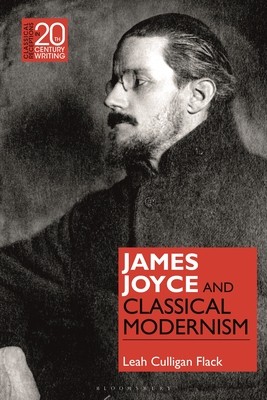
- We will send in 10–14 business days.
- Author: Leah Culligan Flack
- Publisher: Bloomsbury Publishing PLC
- ISBN-10: 1350193704
- ISBN-13: 9781350193703
- Format: 15.6 x 23.4 x 1 cm, softcover
- Language: English
- SAVE -10% with code: EXTRA
Reviews
Description
JamesJoyce and Classical Modernismcontends that the classical world animated Joyce's defiant, innovative creativity and cannot be separated from what is now recognized as his modernist aesthetic. Responding to a long-standing critical paradigm that has viewed the classical world as a means of granting a coherent order, shape, and meaning to Joyce's modernist innovations, Leah Flack explores how and why Joyce's fiction deploys the classical as the language of the new.This study tracks Joyce's sensitive, on-going readings of classical literature from his earliest work at the turn of the twentieth century through to the appearance of Ulyssesin 1922, the watershed year of high modernist writing. In these decades, Joyce read ancient and modern literature alongside one another to develop what Flack calls his classical modernist aesthetic, which treats the classical tradition as an ally to modernist innovation. This aesthetic first comes to full fruition in Ulysses, which self-consciously deploys the classical tradition to defend stylistic experimentation as a way to resist static, paralyzing notions of the past. Analysing Joyce's work through his career from his early essays, Flack ends by considering the rich afterlives of Joyce's classical modernist project, with particular attention to contemporary works by Alison Bechdel and Maya Lang.
EXTRA 10 % discount with code: EXTRA
The promotion ends in 19d.06:16:30
The discount code is valid when purchasing from 10 €. Discounts do not stack.
- Author: Leah Culligan Flack
- Publisher: Bloomsbury Publishing PLC
- ISBN-10: 1350193704
- ISBN-13: 9781350193703
- Format: 15.6 x 23.4 x 1 cm, softcover
- Language: English English
This study tracks Joyce's sensitive, on-going readings of classical literature from his earliest work at the turn of the twentieth century through to the appearance of Ulyssesin 1922, the watershed year of high modernist writing. In these decades, Joyce read ancient and modern literature alongside one another to develop what Flack calls his classical modernist aesthetic, which treats the classical tradition as an ally to modernist innovation. This aesthetic first comes to full fruition in Ulysses, which self-consciously deploys the classical tradition to defend stylistic experimentation as a way to resist static, paralyzing notions of the past. Analysing Joyce's work through his career from his early essays, Flack ends by considering the rich afterlives of Joyce's classical modernist project, with particular attention to contemporary works by Alison Bechdel and Maya Lang.


Reviews